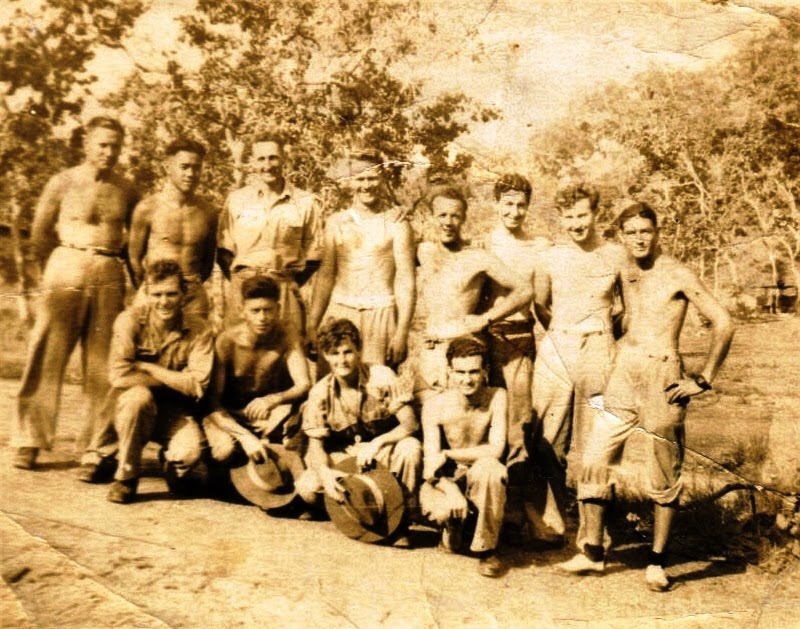 |
| Dad in New Guinea (Front row - second from left). |
On the centenary of the Gallipoli landings, everyone is
making declarations about their understanding of the meaning of ANZAC.
So who am I to presume to be different?
Frankly, my association with and view of ANZAC Day has
changed substantially through the years.
When I was a kid, it meant joining my mates in marching a
short distance to a ceremony in front of memorials in bush townships. My dad
would also march wearing his medals.
When I was that age (primary school) dad was working his way up the
seniority ladder as principal of a number of small bush schools.
Dad was a returned airman (RAAF - New Guinea ) and an RSL member, and
as the local schoolie he was always involved in the organisation of the day. I
don't recall him holding any great enthusiasm for the commemoration, but he was
always there - almost with a sense of resignation.
He never went drinking after the ceremony as I recall. Many
of his contemporaries did, and I remember as a kid, feeling indignant about this. To me it seemed disrespectful.
Perhaps it was this that caused me to lose interest and
become hostile to the concept, as for a time, in teenage and my twenties I did
just that.
When I was called up, I hadn't been to an ANZAC Day
commemoration for years, and this didn't change after Vietnam . If
anything, my experience as a conscript reinforced my rejection of the myth.
I also sensed the hostility at the time to Vietnam
veterans who were vilified by both the Left and Right of politics - the Left
for fighting - the Right for "losing". I remember wondering why
Gallipoli (a defeat and withdrawal) was glorious, and Vietnam
shameful. Those in the community less politically aware compromised by indifference.
I had also become intensely aware of the credibility gap
between the myth and the reality.
In 1985, I was the Principal of Petrie Special School (a
school that no longer exists). The local RSL presented a cheque to the school,
and I was asked to accept it at a ceremony on ANZAC Day.
The local secretary discovered I was Vietnam veteran
and asked me why I wasn't marching. I didn't really have an answer, and it
would have looked churlish not to, so for the first time in years, I
participated.
The Welcome Home march happened a few years later, and the
attitude to Vietnam
veterans changed from disregard and hostility to grudging respect.
It is to me, and to these men, an important day. Yet we are
acutely conscious of the fickle nature of community support for veterans.
Last night I watched a documentary about the Australian
Light Horse in World War one. There was a great deal of grief and bitterness
expressed by members of this renowned unit when their strong and loyal horses
were put down prior to returning home.
The cost of returning the horses could not, apparently, be
justified. Of the 39000 who served with the AIF, only one Waler is known to
have been returned to Australia ;
"Sandy", the mount of Major-General W T Bridges, an officer who was killed at Gallipoli in May 1915.
A member of the Light Horse was quoted as saying that there
was no consideration of cost in the decision to send the horses to Egypt in the first
place, so why was it an issue after they had done their duty?
I recalled having to pay my air fare from Sydney
to Brisbane on my return to Australia in
1970, whereas the army was quite content to fly me and my compatriots to
Singleton on callup.
Not much, it seems, has changed - whether it's soldiers or
horses. Both remain collateral.





